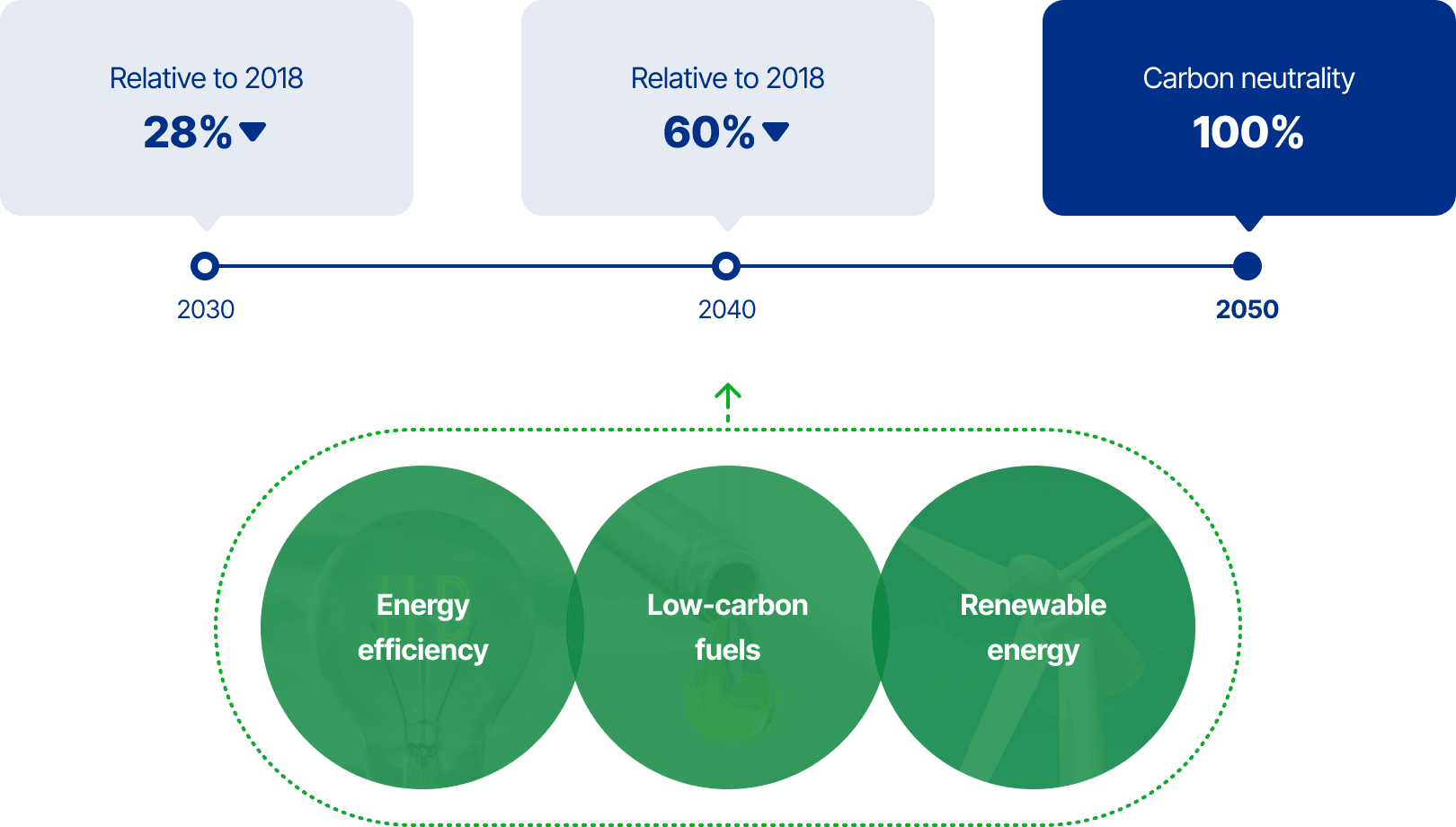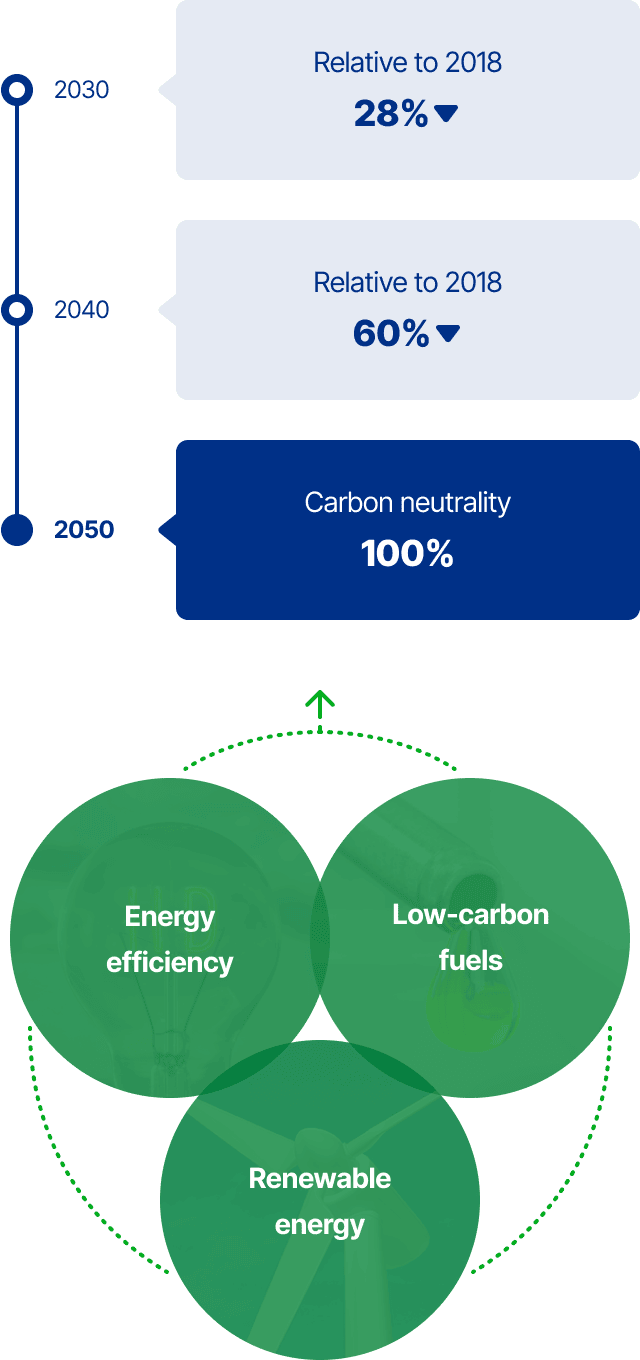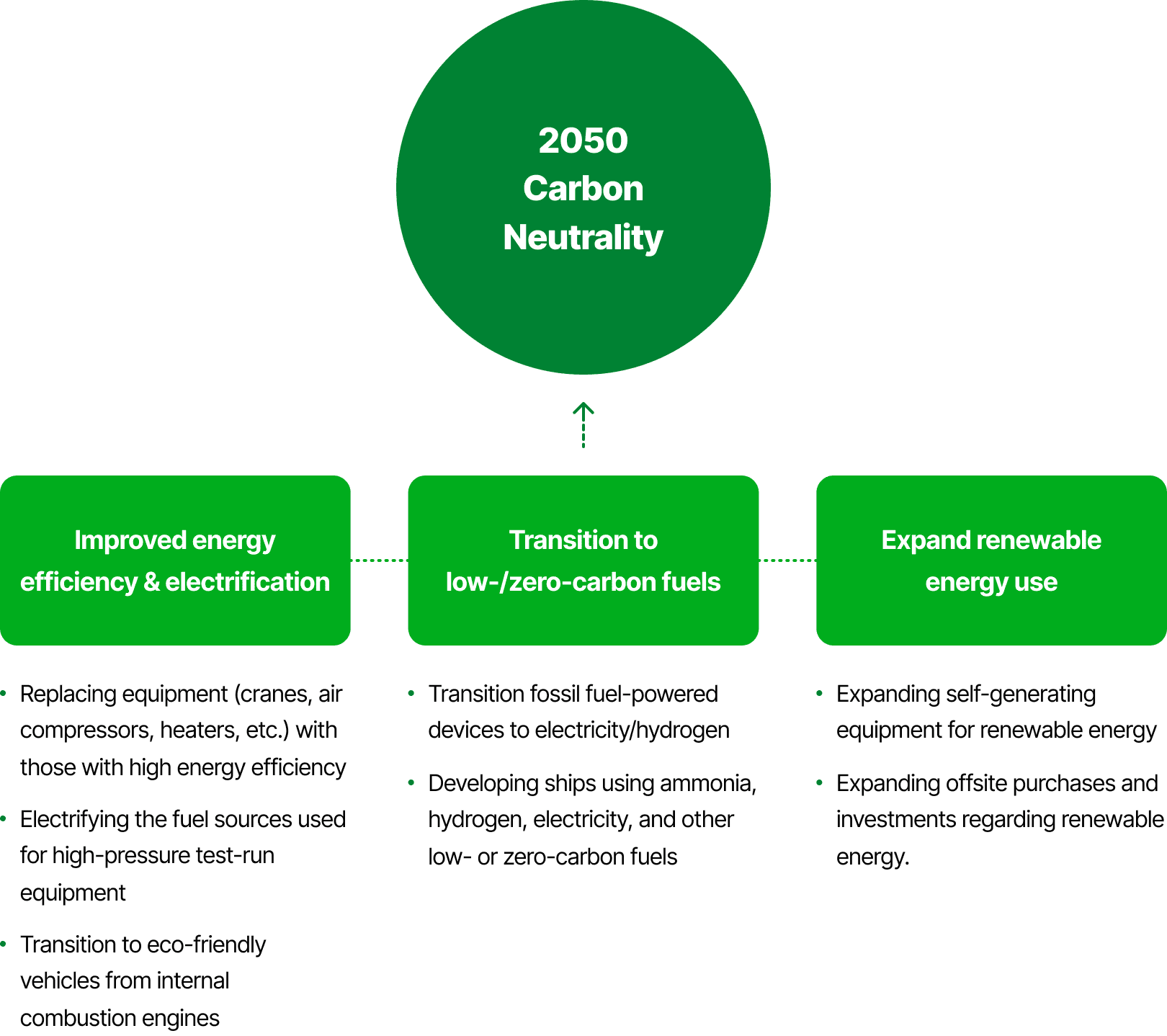Environmental


Sustainability
Response to
Climate Change
HHI is pursuing carbon neutrality
by improving energy efficiency,
transitioning to low-/ zero-carbon fuels,
and expanding the use of
renewable energy.
Furthermore,
we'll continue our
efforts to achieve 100% renewable
energy use by 2050 through
on-site solar power generation and
external procurement of renewable energy.
Climate Change
Response Strategy
Carbon Neutrality Roadmap
HHI reported its carbon neutrality roadmap to the ESG Committee under the Board of Directors in the first half of 2023. In May 2023, HHI, together with HD Hyundai’s shipbuilding affiliates, declared its commitment to achieving carbon neutrality by 2050 and publicly released its implementation roadmap. This roadmap was developed in line with the 1.5°C scenario, based on an IPCC SSP scenario analysis. Its targets were set in consideration of domestic and international climate-related laws and regulations, the industry’s transition status, HHI’s technology development progress, and alignment with business strategies.


HHI aims to reduce greenhouse gas emissions (Scope 1 and 2) from its business operations by 28% by 2030 and 60% by 2040, compared to 2018 levels, with the goal of achieving carbon neutrality by 2050.
Carbon Neutrality
Implementation Strategy
Action Plan for Carbon
Neutrality by 2050
HHI has established a 2050 carbon neutrality roadmap and formulated an action plan tailored to industry characteristics. We will achieve carbon neutrality by improving energy efficiency and electrification, transitioning to low-/zero-carbon fuels, and expanding the use of renewable energy.


2050 Carbon Neutrality
- Improved energy efficiency & electrification
- Replacing equipment (cranes, air compressors, heaters, etc.) with those with high energy efficiency
- Electrifying the fuel sources used for high-pressure test-run equipment
- Transition to eco-friendly vehicles from internal combustion engines
- Transition to low-/zero-carbon fuels
- Transition fossil fuel-powered devices to electricity/hydrogen
- Developing ships using ammonia, hydrogen, electricity, and other low- or zero-carbon fuels
- Expand renewable energy use
- Expanding self-generating equipment for renewable energy
- Expanding offsite purchases and investments regarding renewable energy
